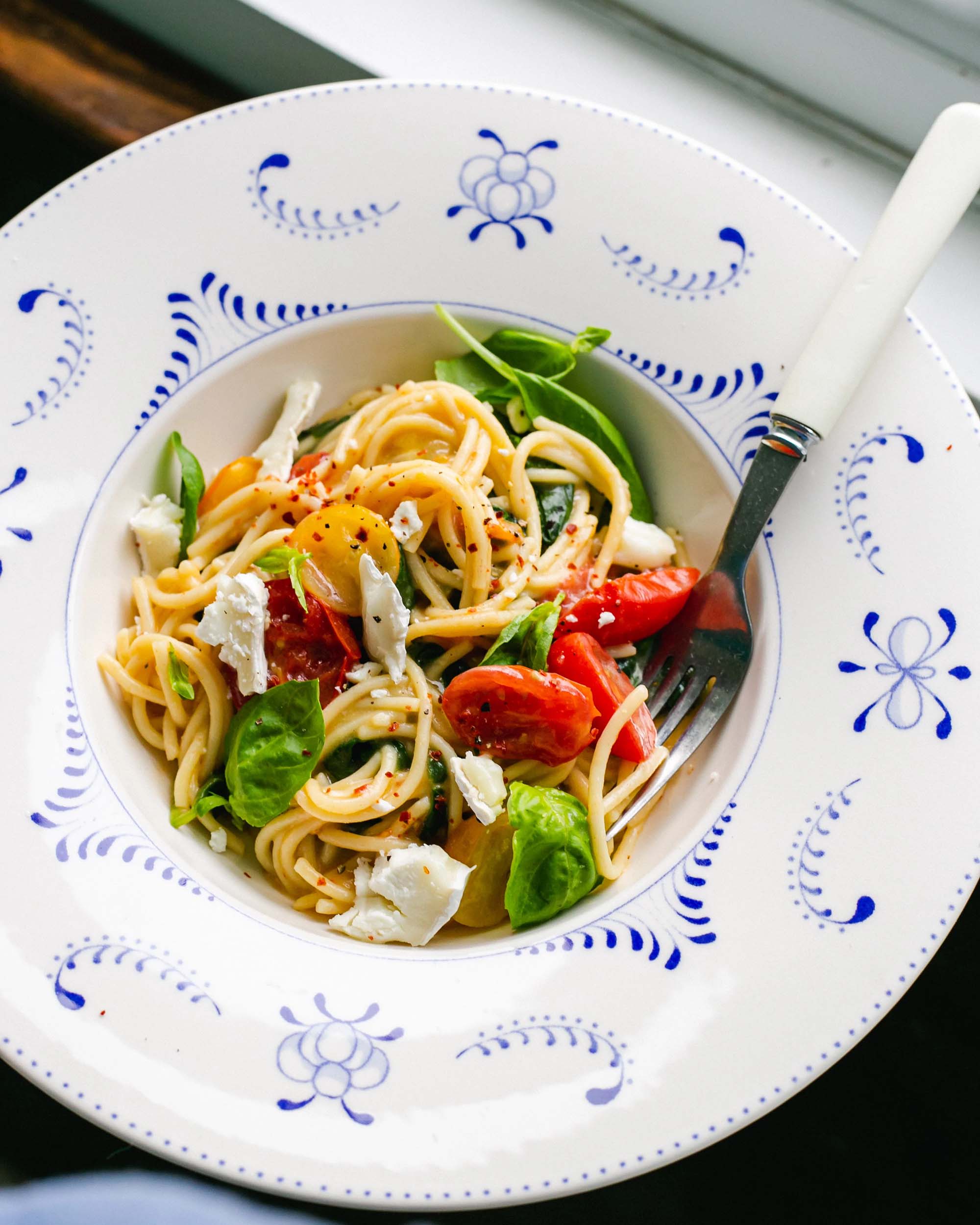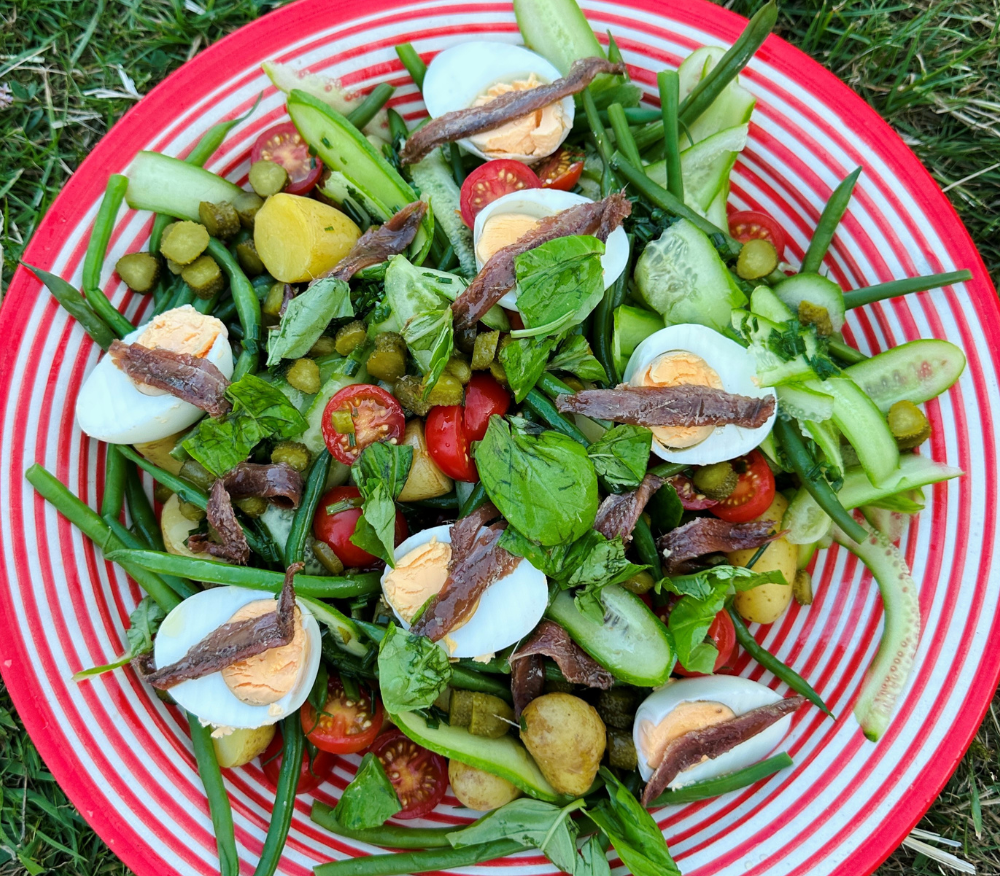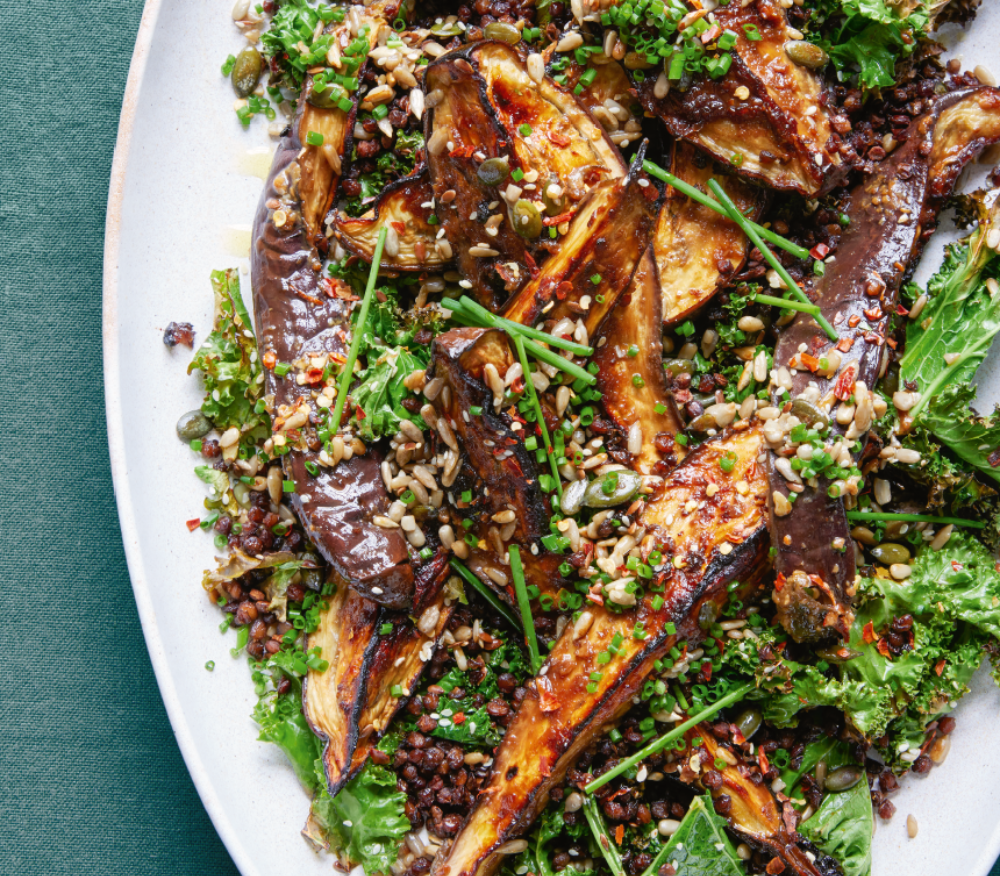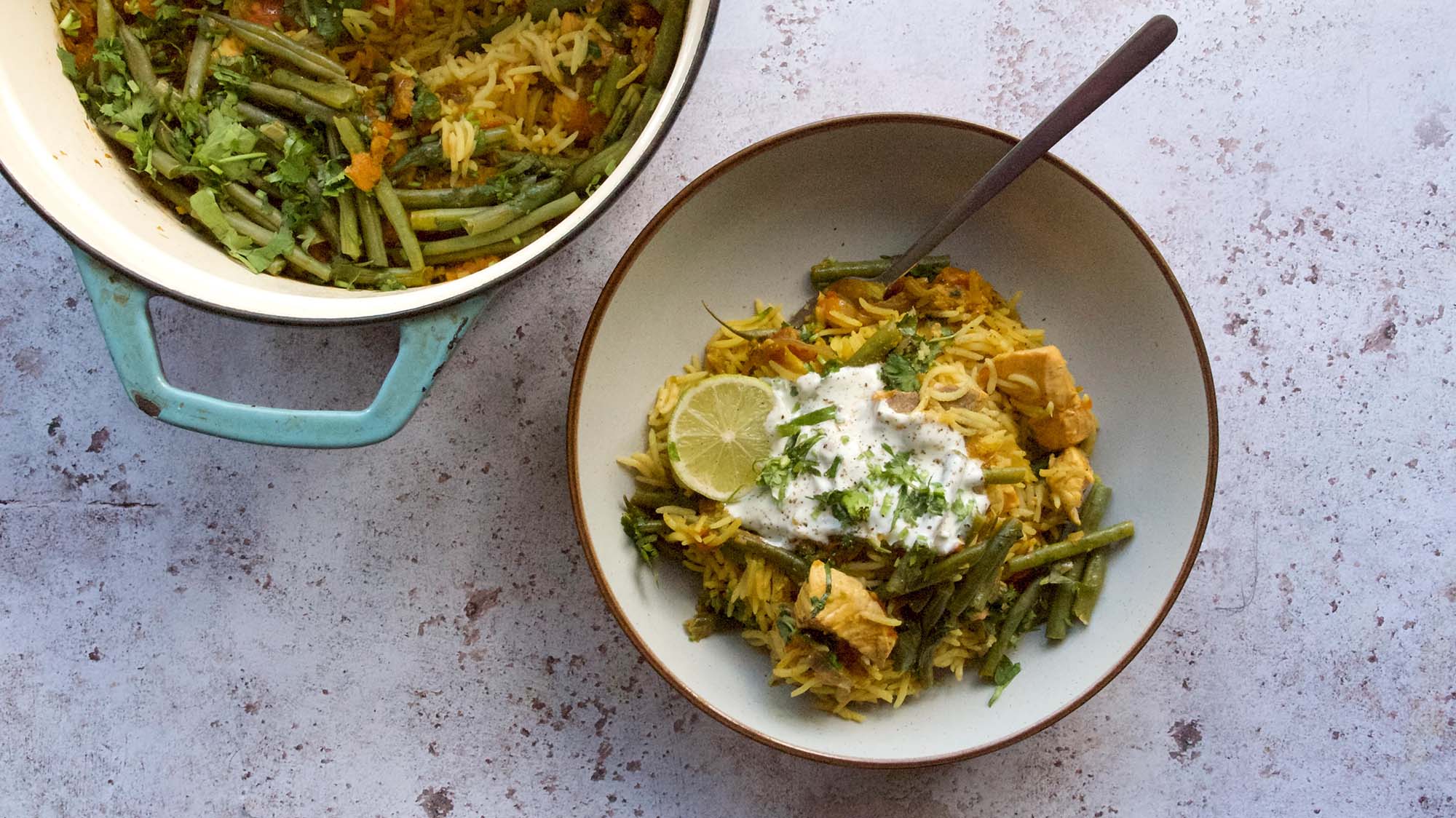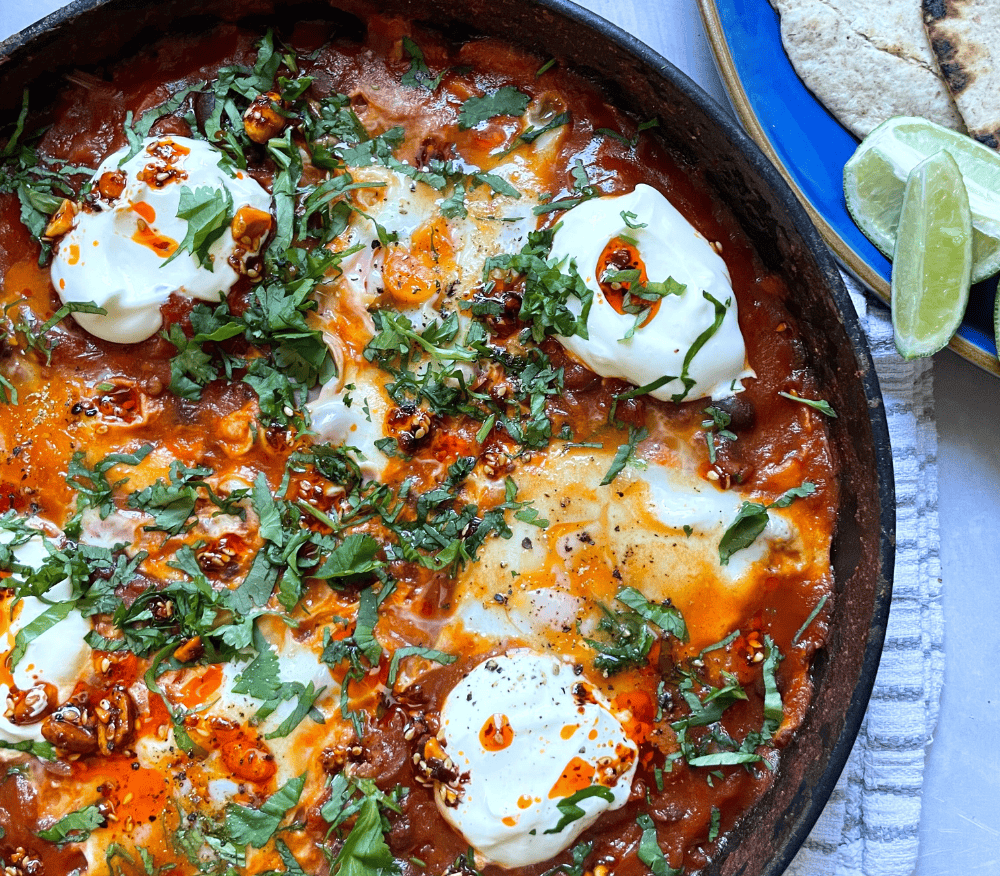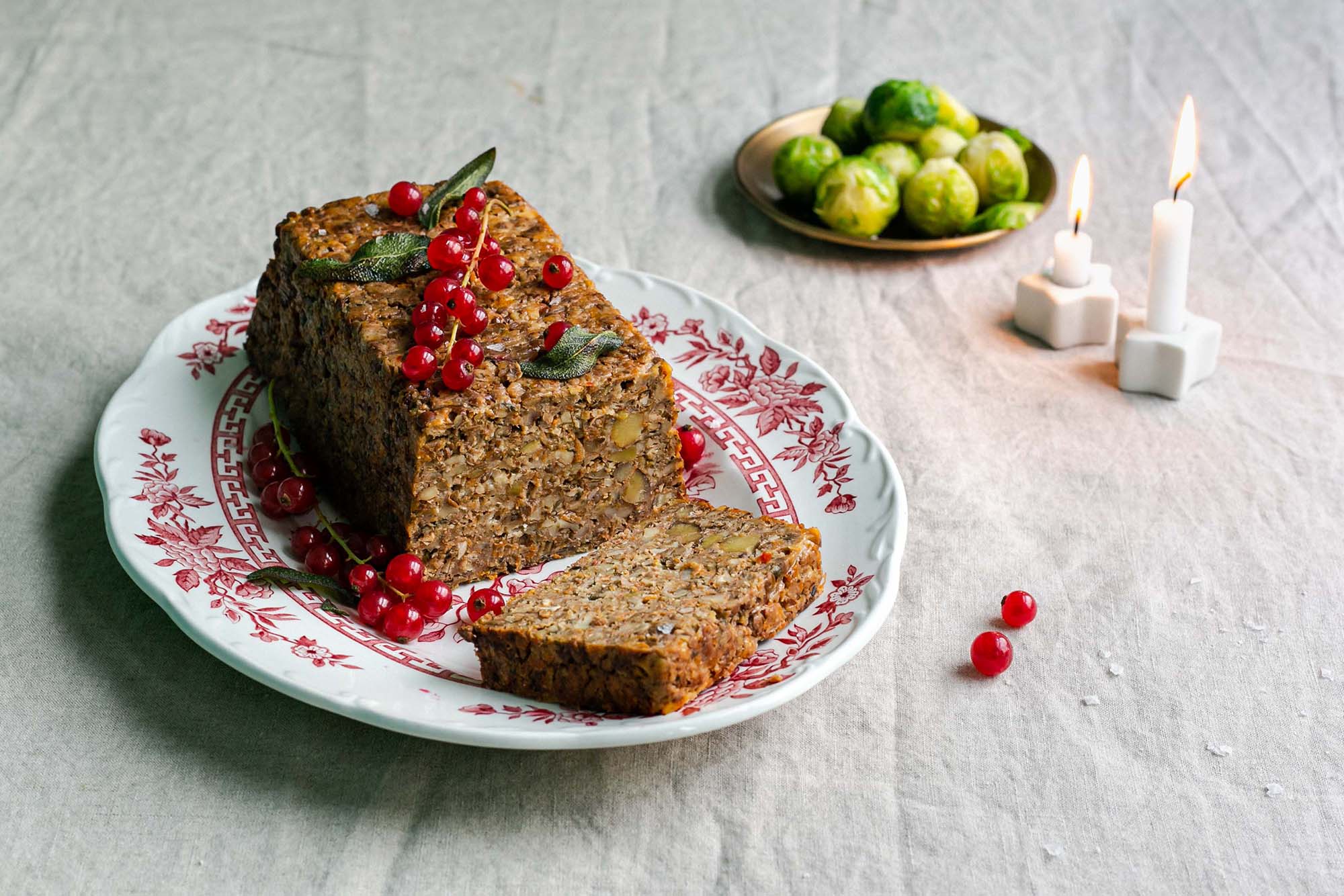October: Week Eight
Hit play on our relaxed cooking playlist
Day 1: Spinach and Tomato Pasta
How does it support my immune health?
Tomatoes and tomato products (e.g. tomato puree, tomato juice) are major sources of lycopene – a plant chemical found in highest amounts in the skin and acts as a powerful antioxidant. Lycopene can increase antibody production by specialist immune cells called B cells. Antibodies attach to harmful invaders - such as bacteria and viruses – and neutralise them.
Spinach is a good source of iron which is needed by immune cells – such as neutrophils and natural killer (NK) cells - to function optimally and to help mount effective responses against infections.
Day 2: No Tuna Niçoise
How does it support my immune health?
Potatoes are often underestimated for their nutritional value, despite being an important source of several immune-supporting vitamins and minerals including vitamin C, iron, magnesium, and folate.
Green beans contain vital nutrients including calcium, magnesium, potassium, as well as vitamin C and K. Vitamin K is linked with anti-inflammatory activities. What’s more, certain gut microbes are able to produce vitamin K, helping to contribute to vitamin K status.
Day 3: Sticky Miso Aubergines with Crunchy Seeds
How does it support my immune health?
A key ingredient in this dish is aubergine (or eggplant). These are particularly high in anthocyanins – the purple pigments found in the skin. Anthocyanins have potent anti-inflammatory effects and support immune health by neutralising harmful compounds (known as free radicals) that are known to damage cells.
This recipe also contains different types of seeds (e.g. sunflower seeds and pumpkin seeds). Seeds are nutrition powerhouses which offer valuable nutrients that support maintenance of normal immune function, including protein, vitamin E, and selenium.
Day 4: One Pan Salmon Biryani
How does it support my immune health?
Salmon is rich in protein which acts as building blocks for all immune cells and antibodies. Salmon is also a rich source of omega 3 fatty acids (specifically eicosapentaenoic acid; EPA and docosahexaenoic acid; DHA) which have potent anti-inflammatory effects.
Garlic is a must in this dish. The compounds in garlic (such as caffeic acid and S-allyl-L-cysteine) are thought to have anti-inflammatory effects and increase the functioning of certain immune cells, such as macrophages, natural killer (NK) cells, and specialist T and B cells.
Day 5: Black Bean Shakshuka
How does it support my immune health?
Eggs are rich in protein which acts as building blocks for all immune cells and antibodies.
Garlic is a must in this dish. The compounds in garlic (such as caffeic acid and S-allyl-L-cysteine) are thought to have anti-inflammatory effects and increase the functioning of certain immune cells, such as macrophages, natural killer (NK) cells, and specialist T and B cells.
Black beans are packed with fibre, containing around 8g per half can. Specifically, black beans contain prebiotics – a type of fermentable fibre that acts as ‘food’ for your gut microbiome.
Day 6: Sage and Mushroom Nut Roast
How does it support my immune health?
The beta-glucans (type of fibre) found in mushrooms have been found to increase the activity of immune cells, such as macrophages and dendritic cells. Beta-glucans also act as ‘food’ for your gut microbiome. In return, your gut microbes release health-promoting compounds into the gut, such as short chain fatty acids (SFCAs).
The lentils in this dish are packed with fibre, containing an impressive 8g per half can. Specifically, lentils contain prebiotics – a type of fermentable fibre that acts as ‘food’ for your gut microbiome. In return, your gut microbes release health-promoting compounds into the gut, such as short chain fatty acids (SFCAs).
Day 7: Mango and Passionfruit and Strawberry and Raspberry Ice Lollies
How does it support my immune health?
The berries in these ice lollies - such as raspberries and strawberries – stand out for their high amounts of polyphenols, such as anthocyanins. These are the red-purple pigments that have potent anti-inflammatory effects and give berries their vibrant colour.
Berries appear to promote the growth of beneficial microbes. For example, mucin-producing microbes that can protect the lining of the gut.
Hungry for more? Dig into the next batch of gut-immune-supportive recipes
Discover more tips to help support your gut-immune connection.





